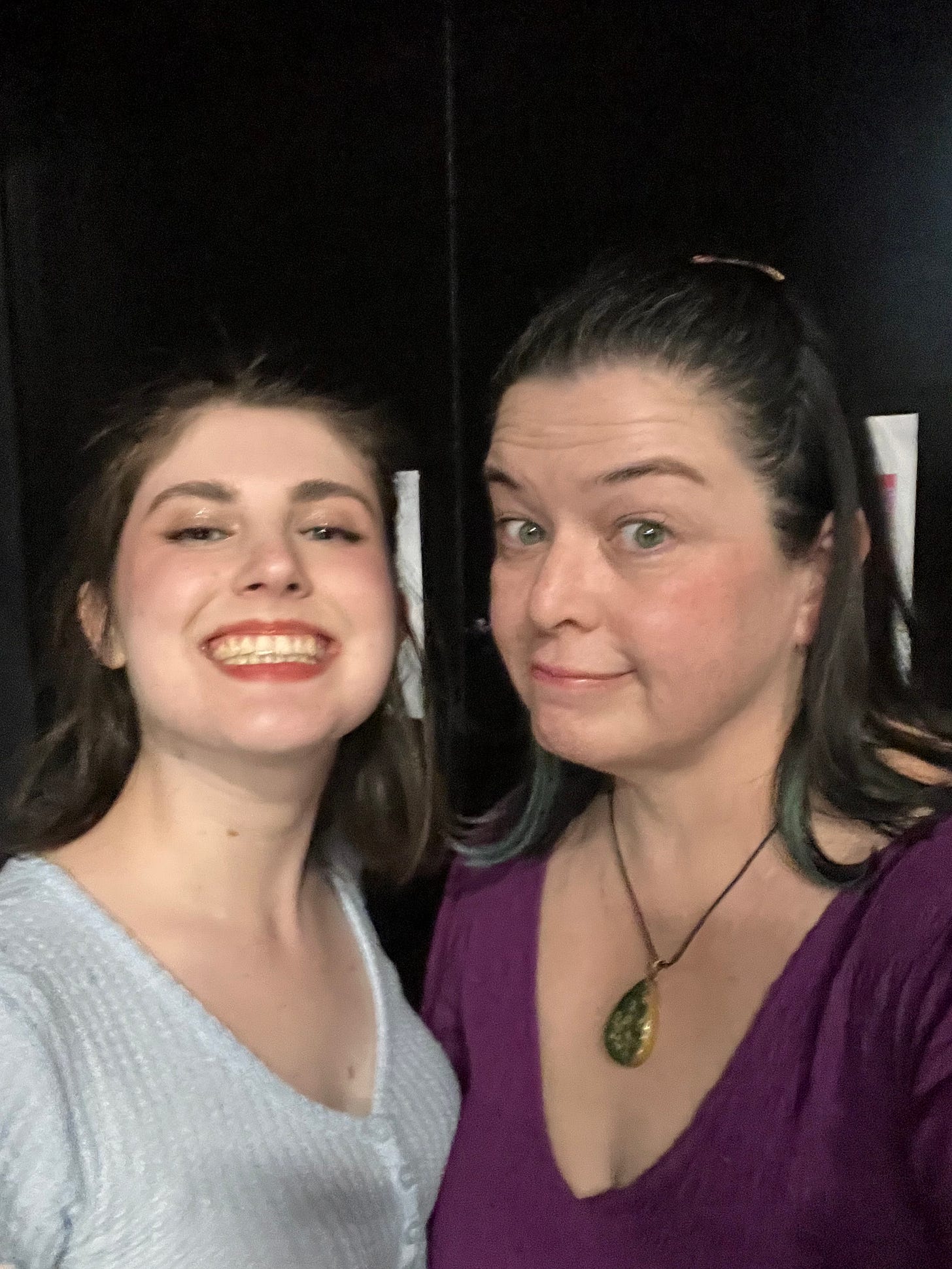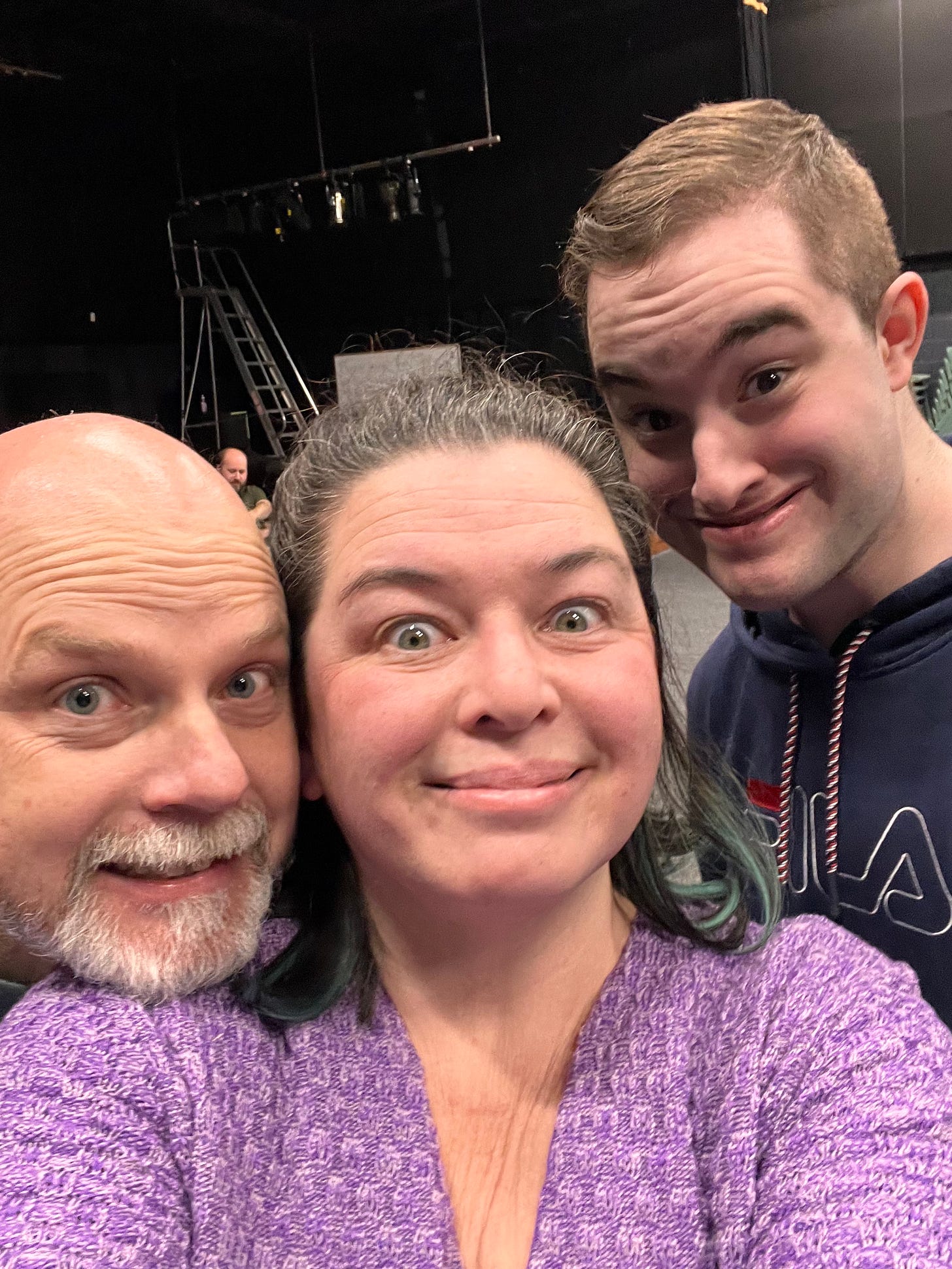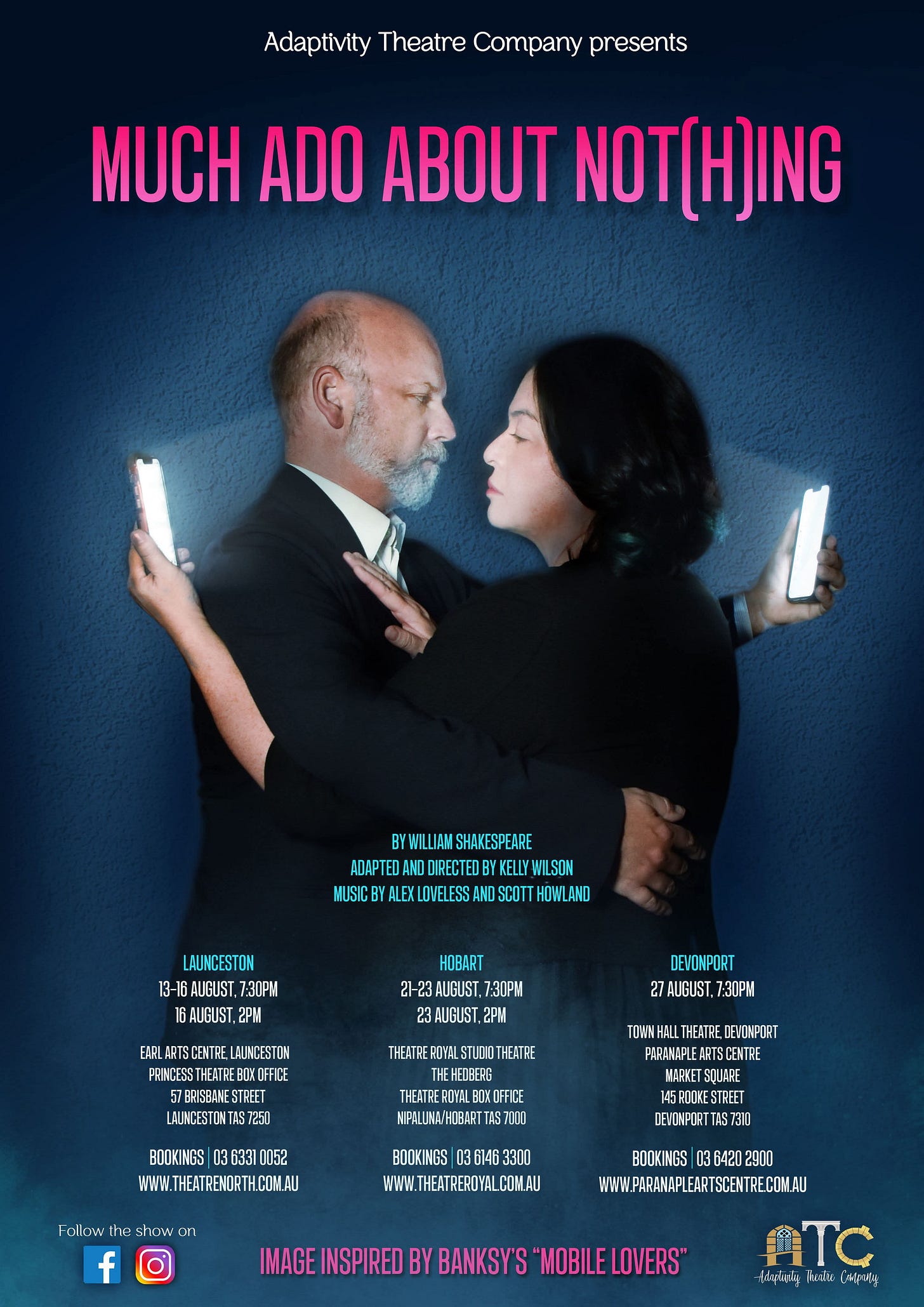It’s crunch time!
Much Ado About Not(h)ing opens next week in Launceston, then a handful of shows in Hobart the following week, and one in Devonport the week after that. It’s been a lot of fun, but also a challenge, playing a lead role and balancing work with my health issues. I thought I had put in enough pacing padding, like scheduling work from home days after an evening rehearsal, guarding my ‘free’ days on the weekends and stubbornly doing nothing, booking leave around show dates etc.
But it’s undeniable that a) I am not as young as I once was, and b) the fatigue effects are cumulative.
The very modest amount of dancing/movement we do in the show took a while to get used to and I’d come home after rehearsal absolutely wrecked. Finding enough breath to sing while doing said movement was another sapper. The brainpower required to memorise Shakespeare, yet another energy vampire.
The rehearsal process can be a bit torturous, especially when you’re amateur actors. Professional companies have much shorter rehearsal periods, and because it’s their job, the actors spend hours each day immersed in a play. When you only have a few hours a couple of times a week, it takes a while for everyone to get coordinated and for the machine to start really moving.
But the feeling when the engine finally turns over and we get a bit of momentum…that’s the drug. That’s what we keep coming back for.
This version of the play has an interesting social media aspect. The audience is given the choice to watch the play, or to watch and interact with all the characters in a Facebook group while the play progresses. It’s been a bit of a mindbend to try and stay in character while using a phone backstage, because we’re usually encouraged to keep them off and away while the show is on. It turns the ‘usual’ theatre etiquette on its head, so I’ll be keen to see what people do and how they respond to this element of the show.
I realise that, remembering my honours project about Hamlet in the afterlife, I’ve always been interested in destablising an audience and seeing what they do with it and perhaps that’s another reason I was drawn to Kelly’s version of Much Ado. In my play (Trippingly on the Tongue), I had the characters accept the bleak reality of their existence/non-existence at the end of the play and just sit onstage playing a game of 500, ignoring the audience. The audience had to decide when to leave. Some people got really pissed off that there wasn’t a clear ending and nobody clapped (in hindsight it might have been cruel to starve the actors of their proper due). Others delighted in the challenge and wanted to see how long the actors would stay in character (and who would win in a game of 500, Hamlet, Ophelia, Gertrude or Claudius? (I did eventually have to kick them out))
Someone (an academic, if I remember correctly) approached me after one of the performances. He wanted to take Trippingly and put it on at a Shakespeare festival, but also wanted to change the ending because he thought it was too unsettling and audiences wouldn’t get it. I refused, and the play never got performed again.
Who knows, that could have been the beginning of something…oh well.
Back to Much Ado. I’ve loved this play since I studied it at uni, and then saw the 1993 Kenneth Branagh/Emma Thompson film. We put on a NUTS production of it towards the end of my degree, but the director wanted me as stage manager rather than a cast member. It was always ‘the one that got away’.
So having the opportunity to play Beatrice, finally, has been such a gift. She’s quick-witted, funny, silly, loyal, passionate and yet vulnerable. She holds her own.
This might be the last play I do, having accepted that it’s too hard on my body and on the people who support me for me to work and do a show at the same time. So I’m pleased that it’s this one, and this role.
If you’re in Tassie, do come and see it!
Book for Launceston, Hobart or Devonport.
My favourite line: “oh God, that I were a man, I would eat his heart in the marketplace”





